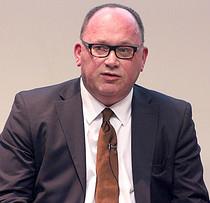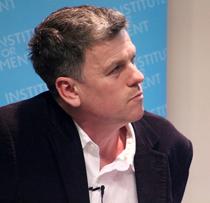Comment
Second time around? Lessons for another coalition
Brokering agreement would be much tougher this time round.
What are the prospects of a second coalition? At an Institute for Government event on Tuesday, the panellists were in agreement: brokering agreement would be much tougher this time round. The markets' demand for political stability – a key factor in the 2010 talks – is less pressing now, and backbenchers and party members are more alive to the costs of coalition
British politicians face a big problem: while the chances of a hung parliament are even greater in 2015 than they were five years ago, enthusiasm for a coalition is much diminished. Leaders considering coalition will risk incurring the wrath of backbenchers and a fall in public popularity; the benefits of forming a stable government will have to be carefully balanced against these political pitfalls. That was the view of our panel, drawing on their combined experience of coalition from the view of each major party.
Opening the event, Andrew Cooper, David Cameron’s former director of strategy, said that perhaps the most important legacy of the 2010 coalition has been to demonstrate that "coalition is durable [and] that multi-party politics can work". But while coalition government had set a precedent, it had also highlighted the risks of coalition, particularly to the junior party: "Of course, the short term political price [for the Liberal Democrats] has been immense, and time will tell whether it’s been so immense that it’s been an ultimately pyrrhic process," he said.
Our panellists shared their reflections on what the Lib Dems, or another smaller party, might do differently in another coalition. Julia Goldsworthy (a Treasury adviser in the current coalition) said that the ‘optics of coalition’ are important, and parties need to put clearer distance between themselves and their partner: "It’s very difficult for the DPM to sit there every week at PMQs, unable to say anything, and with the act of not doing or saying anything being commented upon." She added that the party needed to engage the public more in how and why tough financial decisions were made: "I don’t think enough time was spent laying out the landscape and explaining why we were having to make these difficult decisions." Cooper agreed that decisions, such as the volte-face on tuition fees, could have been better communicated: "It made people think, completely unjustly, that Nick Clegg had given up his principles in order to get a ministerial car and a job."
The message from the panel, then, was that any junior partner should think long and hard about how to "maintain their distinctiveness" in coalition. However, discussion was not limited to the risks for the smaller party. Cooper argued that coalition also put strain on the relationship between the leader of the larger party and his colleagues: "much too often it seemed like the tail was wagging the dog, and the constant critique from the Conservative side was you’ve given away too much". Goldsworthy agreed that in coalition, "the challenge for the larger party is the authority of the leadership… How do you manage to fend off your backbenchers in a scenario where you’re reliant on another party for support?"
But despite issuing warnings of the risks of entering a second coalition, panellists also pointed out that parties would be under immense pressures to do so. In part these come from public expectations. Goldsworthy said that sometimes "the risks of staying out of government are equally big" – in 2010 there was an expectation that a government would be formed for the sake of the national interest. Once negotiations begin, there will be considerable pressure to reach agreement. Gavin Kelly, former Deputy Chief of Staff to Gordon Brown, questioned whether the public would accept a longer negotiating period: in 2010 "Five days felt like five years", and even now "we are an awfully long way away from being equipped for 12 weeks of talks".
Other powerful incentives driving coalition negotiations this time around will be the Fixed-Term Parliament Act. Since the Act came into force, it's become possible for – say – a Conservative-led government to be replaced by a Labour-led rival, without the need for an election. This means that if one of the two main parties choses to form a minority government but loses a confidence vote, it may find itself out of government and replaced by its opponents within a fortnight. As Goldsworthy pointed out, this makes commanding a majority all the more important, and "creates large pull factors for the larger parties to look for a more secure arrangement". Despite the ramifications of the Act, Kelly said that its implications aren’t fully understood by the public – "If we start getting into the position where governments are changing hands without elections – the public have no idea about that…If that were to happen in the next year, as it could, then I think that really could be quite worrying."
If any party sits at the negotiating table after May 7th it will face a number of choices and will be pulled in a number of different ways. Many ministers, backbenchers and party members, learning their own lessons from coalition, will be arguing for minority government; for a tougher negotiating stance; for a different approach to allocating jobs or managing decision-making. Certainly, everybody will be much more hard-nosed this time. But while people may be more wary in 2015 than they were five years ago, the Fixed-Term Parliaments Act – and with it the incentive to secure a parliamentary majority – may replace in cold political calculations what we have lost in naive enthusiasm.
- Administration
- Cameron-Clegg coalition government
- Publisher
- Institute for Government


